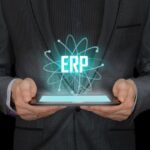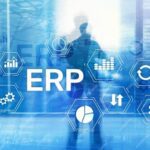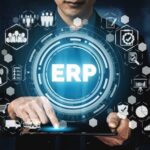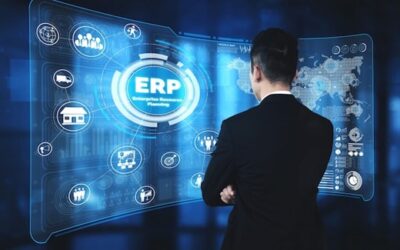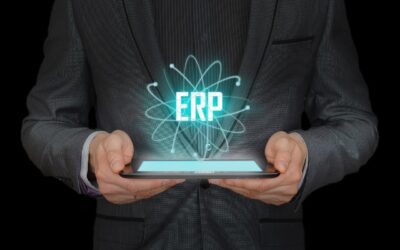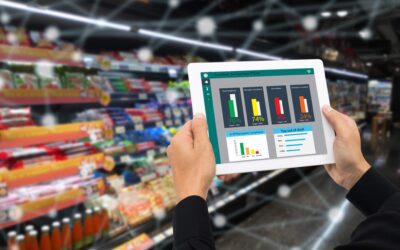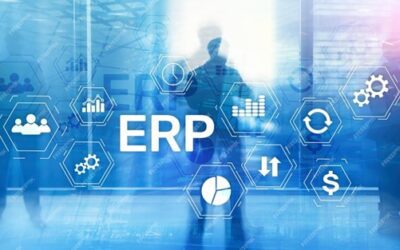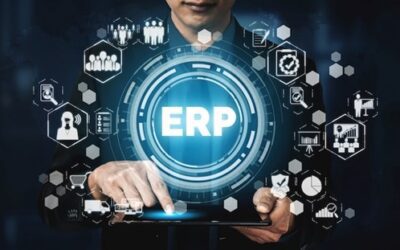
As we move into the digital age, businesses are looking for ways to make their processes more efficient and cost-effective. Artificial intelligence (AI) and machine learning are quickly becoming the go-to technology for many organizations, and they are being used to revolutionize enterprise resource planning (ERP) systems. In this blog, we will explore how AI and machine learning are being used in ERP systems and the benefits they provide for businesses.
What is AI and Machine Learning?
Before we dive into the benefits of AI and machine learning in ERP systems, we first need to define what these technologies are. AI is a broad term that encompasses any technology that can perform tasks that would typically require human intelligence. These tasks can range from recognizing objects in images to natural language processing. Machine learning is a subset of AI that is focused on creating algorithms that can learn from data to make predictions and decisions.
The power of AI and machine learning comes from their ability to process large amounts of data quickly and accurately. This makes them ideal for use in ERP systems, as they can be used to automate and optimize various business processes.
Benefits of AI and Machine Learning in ERP Systems
When it comes to ERP systems, AI and machine learning can provide several benefits, including increased efficiency and accuracy, better decision-making, and improved customer service. Let’s take a look at how these technologies are being used in ERP systems and the benefits they provide.
How Machine Learning is used in ERP Systems
Machine learning is being used in ERP systems to automate and optimize various business processes. One of the most popular uses is predictive analytics, which uses algorithms to analyze data and make predictions about future events and outcomes. This technology can be used in ERP systems to identify potential issues, optimize processes, and make better decisions.
Machine learning can also be used in ERP systems to provide customer support. This technology can be used to analyze customer data and provide personalized recommendations and solutions. This can help improve customer satisfaction and loyalty.
AI and machine learning can also be used in ERP systems to automate integration and forecasting. This technology can be used to identify patterns in data, predict future needs, and make recommendations for how best to integrate different systems. This can help businesses save time and resources by streamlining processes.
Predictive Analytics and Customer Support
Predictive analytics is one of the most powerful tools available for ERP systems. This technology can be used to analyze data and make predictions about future customer behaviors and needs. This can help businesses identify customer trends, optimize processes, and make more informed decisions.
Predictive analytics can also be used to provide customer support. This technology can be used to analyze customer data and provide personalized recommendations and solutions. This can help improve customer satisfaction and loyalty.
AI-driven Integration and Forecasting
AI and machine learning can also be used in ERP systems to automate integration and forecasting. This technology can be used to identify patterns in data, predict future needs, and make recommendations for how best to integrate different systems. This can help businesses save time and resources by streamlining processes.
AI-driven integration and forecasting can also be used to optimize stock management and inventory control. This technology can be used to analyze customer data and predict customer needs. This can help businesses optimize their inventory levels and reduce costs.
Stock Management and AI-driven Inventory Control
AI and machine learning can be used to optimize stock management and inventory control. This technology can be used to analyze customer data and predict customer needs. This can help businesses optimize their inventory levels and reduce costs.
AI-driven inventory control can also be used to analyze customer data and make recommendations for how best to manage inventory. This can help businesses identify trends and predict customer needs, allowing them to be better prepared for future demand.
Real-Time Analytics and AI-driven Decisions
Real-time analytics is another powerful tool that can be used in ERP systems. This technology can be used to analyze data in real-time and make decisions quickly. This can help businesses respond to customer needs quickly and make more informed decisions.
AI-driven decisions can also be used to identify trends and make predictions about future customer behaviors and needs. This can help businesses make better decisions and optimize processes.
Benefits of AI-driven Automation
AI and machine learning can be used to automate various business processes, including customer service, marketing, and inventory control. Automation can help businesses save time and resources by streamlining processes and eliminating manual tasks.
AI-driven automation can also be used to improve customer service. This technology can be used to analyze customer data and provide personalized recommendations and solutions. This can help improve customer satisfaction and loyalty.
Challenges of AI-driven ERP Systems
Despite the many benefits of AI and machine learning in ERP systems, there are also some challenges. One of the biggest challenges is the cost of implementing and maintaining AI-driven systems. These systems require significant investments in hardware, software, and personnel, and they can be difficult to maintain.
Another challenge is the potential for errors. AI and machine learning systems can make mistakes, and it can be difficult to spot and correct errors in these systems. This can lead to inaccurate data and bad decisions.
Finally, AI and machine learning systems can be slow to respond to changes in the environment. This can lead to data inaccuracies and poor decision-making.
Conclusion
AI and machine learning are quickly becoming the go-to technologies for many organizations, and they are being used to revolutionize enterprise resource planning (ERP) systems. These technologies can provide several benefits, including increased efficiency and accuracy, better decision-making, and improved customer service.
However, there are also some challenges associated with AI-driven ERP systems. These systems require significant investments in hardware, software, and personnel, and they can be difficult to maintain. Additionally, AI and machine learning systems can make mistakes, and they can be slow to respond to changes in the environment.
Despite these challenges, AI and machine learning are quickly becoming an essential part of ERP systems. These technologies can help businesses automate and optimize various business processes and make better decisions. If you’re looking to make your processes more efficient and cost-effective, AI and machine learning are worth considering.

